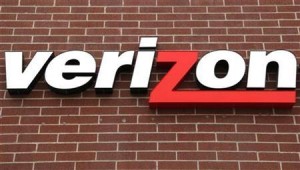 In a recent ruling by the US Court of Appeals in Washington DC, Verizon Wireless’ plea to overturn a new FCC rule was turned down, scoring a win for the FCC and for all smaller wireless operators looking to expand their coverage. The rule, implemented a year ago, required large wireless operators like Verizon and AT&T to negotiate reasonable deals on their 4G LTE networks with any wireless operator interested in using the former’s network for territory expansion.
In a recent ruling by the US Court of Appeals in Washington DC, Verizon Wireless’ plea to overturn a new FCC rule was turned down, scoring a win for the FCC and for all smaller wireless operators looking to expand their coverage. The rule, implemented a year ago, required large wireless operators like Verizon and AT&T to negotiate reasonable deals on their 4G LTE networks with any wireless operator interested in using the former’s network for territory expansion.
The FCC had previously allocated wireless spectrum for cell phone usage, attracting hundreds of small service providers, offering roaming deals for customers in areas where the service providers lacked a network footprint. However, with the consolidation of the market, a few of these service providers, namely Verizon Wireless and AT&T, saw exponentially larger progress than the others, creating a duopoly in the market. This caused a major handicap for the smaller service providers who couldn’t expand unless they negotiated with two largest nationwide carriers, who allegedly refused to negotiate reasonable deals with them with the intention of bleeding out the competition.
In order to level the playing field, the FCC introduced the rule that mandated large carriers to offer roaming deals at reasonable rates to smaller competitors. This rule, while welcomed by many small service provides, was strongly opposed by Verizon Wireless. Verizon put forth the claim that the new rule, reminiscent of the voice roaming rule of 2007, was unauthorized and that the FCC had no jurisdiction to regulate the airwaves. The court declared appeal in the FCC’s favour, asserting that Verizon was free to build networks without government licenses if it was not approving of the FCC’s rules.
In addition to this, some carriers have also been pushing the FCC to look into making 700MHz of spectrum with AT&T interoperable, which was bought by AT&T to resolve its interference issues. This prevented other carriers looking to share the band class to build their own 4G LTE networks from being privy to this band class. This exclusivity by AT&T has led to the creation of the Interoperability Alliance – a coalition of several smaller wireless providers that have collaborated for the sole purpose of releasing this band space.
The court decision in the FCC’s favour has been generally well-received, with Verizon Wireless as the obvious exception, and was figuratively applauded by Congressman Edward Markey, from D-Mass. According to Markey, the new rules prevent exorbitant roaming charges discouraging and restricting consumers’ utility of their wireless handsets, particularly when they roam outside of their own network.